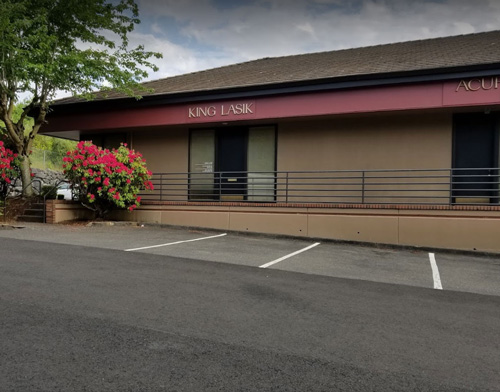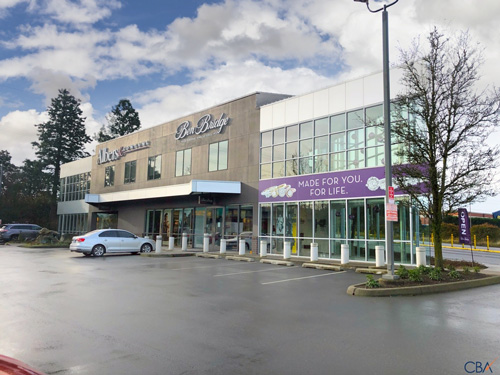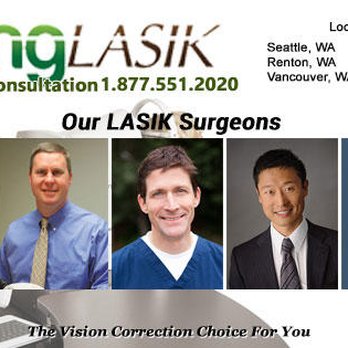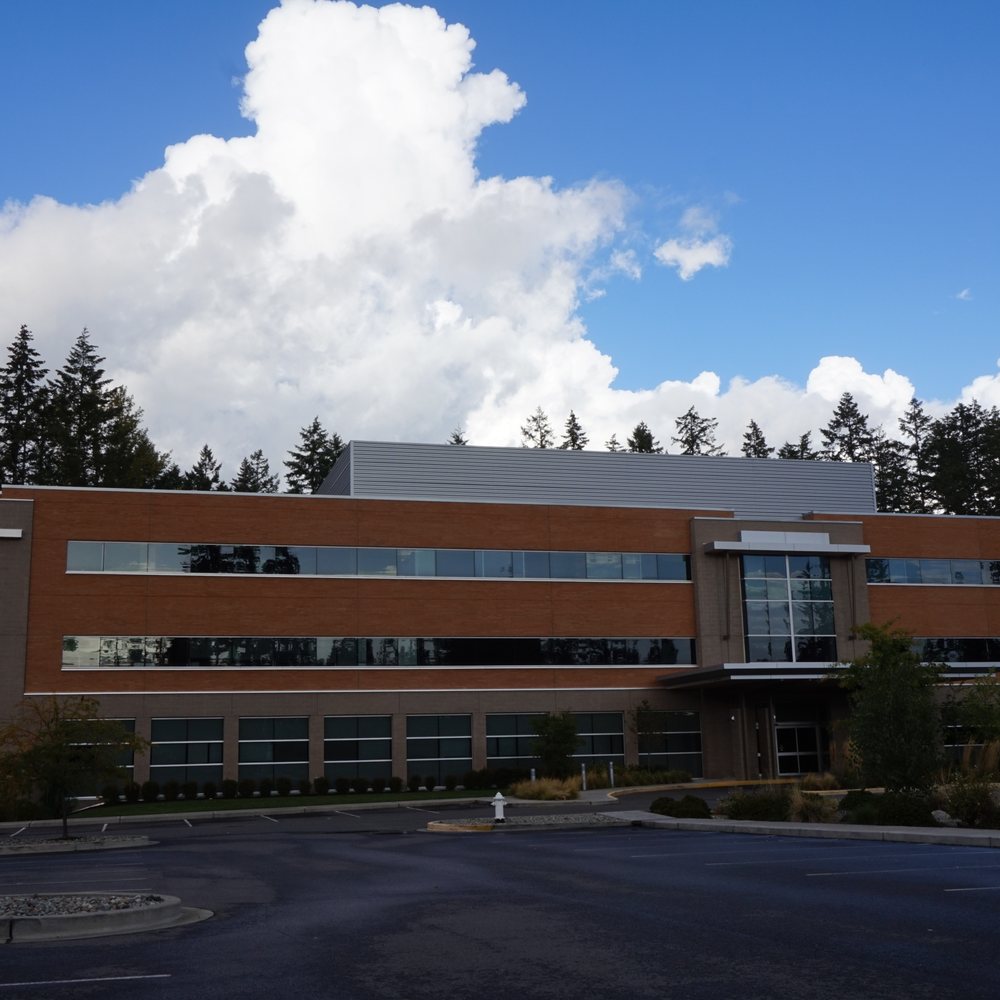If you’re considering Lasik surgery in Tacoma, Washington, look no further. This article will guide you through the best options available for this life-changing procedure. Discover the top clinics, experienced surgeons, and cutting-edge technology that are renowned for delivering exceptional results in Tacoma. Whether you’ve been wearing glasses for years or just starting to consider vision correction, finding the best Lasik surgery in Tacoma will ensure you achieve optimal visual clarity.

Cost of Lasik Surgery
Determining Factors for Cost
When considering Lasik surgery, one of the important factors to take into account is the cost. The price of Lasik surgery can vary depending on several factors. One of the main factors influencing the cost is the complexity of the procedure. The severity of your vision impairment and the type of Lasik procedure required will impact the cost. Additionally, the reputation and experience of the surgeon, the location of the clinic, and the level of technology and equipment used can also affect the overall cost of the surgery.
Affordable Options
Although the cost of Lasik surgery can be a concern for some, there are affordable options available. Many Lasik clinics offer various financing and payment plans to help make the procedure more accessible. These payment options allow you to spread out the cost of the surgery over a period of time, making it more affordable and manageable. It is important to do thorough research and compare different clinics to find the most affordable option that suits your budget and needs. Remember, choosing a reputable surgeon and ensuring the highest quality of care should still be a top priority.
Insurance Coverage for Lasik Surgery
Unfortunately, most insurance plans do not cover the cost of Lasik surgery as it is generally considered an elective procedure. However, it is worth checking with your insurance provider to see if they offer any coverage or discounts for Lasik surgery. Some employers may also provide partial coverage or reimbursement for the procedure, so it is worth exploring all the possible options. If you have a flexible spending account (FSA) or a health savings account (HSA), it is worth looking into whether these funds can be used for Lasik surgery. It is important to note that even if insurance does not cover the cost, Lasik surgery is considered a long-term investment in your vision and quality of life.
Financing and Payment Plans
Many Lasik clinics understand the financial concerns that come with the cost of surgery and offer financing and payment plans. These plans allow you to pay for the procedure in affordable monthly installments. It is important to carefully review the terms and conditions of any financing options to ensure they fit within your budget. Some clinics may offer zero percent interest financing for a certain period of time, while others may have fixed interest rates. Inquire about any additional fees or costs associated with financing and payment plans to have a clear understanding of the total amount you will be paying. Taking advantage of these financing options can make Lasik surgery more accessible for many individuals.
Choosing the Right Surgeon
Credentials and Certifications
When it comes to Lasik surgery, choosing the right surgeon is of utmost importance. Before making a decision, it is crucial to research the credentials and certifications of potential surgeons. Ensure that the surgeon you are considering is board-certified in ophthalmology and has specific training and experience in Lasik surgery. Look for affiliations with professional organizations such as the American Academy of Ophthalmology. These credentials provide assurance that the surgeon has met the highest standards of education and training in the field.
Experience and Expertise
In addition to credentials, the surgeon’s experience and expertise play a significant role in your decision-making process. Look for surgeons who have a substantial number of successful Lasik surgeries under their belt. The more experience a surgeon has, the more likely they are to have encountered various eye conditions and complexities, making them well-equipped to handle any potential challenges. Ask about the surgeon’s specific experience with the type of Lasik procedure you require to ensure they have a thorough understanding of the technique and its potential outcomes.
Patient Reviews and Testimonials
Patient reviews and testimonials can provide valuable insight into the surgeon’s reputation and the overall patient experience. Look for reviews on reputable websites and independent forums to get an unbiased perspective. Pay attention to the overall satisfaction rating and read about specific experiences of patients who have undergone Lasik surgery with the surgeon you are considering. However, it is important to keep in mind that everyone’s experience is unique, and individual results may vary. Use patient reviews as a guideline, but ultimately trust your instincts and evaluate each surgeon based on your specific needs and comfort level.
Referrals from Family and Friends
Seeking referrals from family, friends, or colleagues who have undergone Lasik surgery can also be a helpful way to find a reputable surgeon. They can provide firsthand accounts of their experience and give you insights that may not be found in online reviews. Ask about their satisfaction with the surgeon, the professionalism of the clinic, and the overall outcome of the surgery. However, it is important to remember that personal experiences can vary, and what worked for someone else may not necessarily be the best fit for you. Take referrals into consideration, but conduct your own research and consultations to make an informed decision.

Technology and Equipment
State-of-the-Art Lasik Technology
Advancements in technology have greatly contributed to the success and safety of Lasik surgery. When choosing a Lasik surgeon, it is essential to consider the technology and equipment used in their practice. Look for clinics that utilize state-of-the-art Lasik technology, such as femtosecond lasers, which offer enhanced precision and accuracy during the procedure. These advanced tools ensure a higher level of safety and provide surgeons with the ability to create a customized treatment plan tailored to your unique vision needs.
Precision and Accuracy in Surgical Equipment
The precision and accuracy of the surgical equipment are vital in achieving optimal outcomes in Lasik surgery. The use of advanced laser systems allows surgeons to create precise corneal flaps and reshape the cornea with exceptional accuracy. This level of precision minimizes the risk of complications and allows for a more predictable and successful outcome. When researching potential surgeons, inquire about the specific equipment and technology they employ to ensure that they are using the latest and most advanced tools available.
Safety Measures and Precautions
Lasik surgery is a delicate procedure, and safety should always be a top priority. Look for surgeons who prioritize safety measures and take necessary precautions to minimize any potential risks. A reputable surgeon will conduct thorough pre-operative evaluations to assess your eligibility for surgery, ensuring that you are a suitable candidate. They will also provide detailed post-operative instructions and closely monitor your recovery process. Inquire about the specific safety protocols and standards followed by the clinic to gain confidence in their commitment to your well-being.
Facilities and Hygiene Standards
Assessing the facilities and hygiene standards of the clinic is another important consideration. The clinic should be clean, well-maintained, and equipped with the necessary tools and equipment to provide a safe and comfortable environment for patients. Pay attention to the cleanliness of the waiting areas, examination rooms, and surgical suites. Additionally, ensure that the clinic adheres to strict hygiene protocols to minimize the risk of infection during and after the surgery. A reputable clinic will prioritize your safety and comfort by maintaining high standards of cleanliness and hygiene throughout the entire process.
Customized Lasik Procedures
Wavefront-Guided Lasik
Wavefront-guided Lasik is an advanced procedure that uses wavefront technology to create a three-dimensional map of your eye. This detailed map allows the surgeon to identify and correct even the most subtle irregularities in your vision. Wavefront-guided Lasik is highly customizable, providing precise and accurate correction tailored to your specific visual needs. This procedure is particularly beneficial for individuals with complex vision impairments, such as large pupils, astigmatism, or higher-order aberrations.
Topography-Guided Lasik
Topography-guided Lasik is a specialized procedure that utilizes corneal topography to map the curvature of the cornea. This information allows the surgeon to precisely reshape the cornea, addressing any irregularities that may be causing visual distortions and impairments. Topography-guided Lasik provides highly accurate and effective correction for patients with irregular astigmatism or corneal abnormalities. By precisely customizing the treatment based on the unique topography of your cornea, this procedure can achieve exceptional visual outcomes.
Bladeless Lasik
Bladeless Lasik, also known as all-laser Lasik, eliminates the use of a microkeratome blade, instead utilizing a femtosecond laser to create the corneal flap. This innovative technique enhances the safety and accuracy of the procedure, minimizing the risk of complications associated with blade-related issues. Bladeless Lasik allows for more precise corneal flap creation, resulting in improved visual outcomes and a faster recovery process. The absence of a blade also reduces the risk of flap-related complications, offering patients greater peace of mind.
Presbyopia-Correcting Lasik
Presbyopia-correcting Lasik is a specialized procedure designed to correct age-related near vision loss. As individuals age, the natural lens of the eye loses its flexibility, making it difficult to focus on close objects. Presbyopia-correcting Lasik uses multifocal or accommodating intraocular lenses to restore both distance and near vision. This advanced procedure offers a long-term solution for individuals struggling with presbyopia, reducing or eliminating the need for reading glasses or bifocals.

Pre and Post-Operative Care
Initial Consultation and Examinations
Before undergoing Lasik surgery, an initial consultation and comprehensive eye examinations will be conducted to assess your eligibility for the procedure. These examinations involve evaluating the overall health of your eyes, measuring your prescription, assessing corneal thickness, and determining any potential risk factors. The surgeon will also discuss your medical history and any pre-existing eye conditions or allergies that may affect the outcome of the surgery. Through these examinations, the surgeon can ensure that you are a suitable candidate for Lasik surgery and develop a personalized treatment plan.
Preparing for Lasik Surgery
Leading up to the Lasik surgery, there are certain preparations and precautions that need to be followed. Your surgeon will provide specific instructions on how to prepare for the procedure, which may include temporary cessation of contact lens use and the use of prescribed eye drops to optimize the health of your eyes. It is important to strictly follow these pre-operative instructions to ensure the best possible outcome and minimize any potential risks. If you have any questions or concerns during this preparation phase, do not hesitate to communicate with your surgeon and seek clarification.
Recovery and Healing Process
Immediately after Lasik surgery, you may experience mild discomfort and blurry vision. This is a normal part of the healing process, and your surgeon will provide detailed post-operative instructions to guide you through the recovery phase. It is crucial to follow these instructions diligently to promote proper healing and minimize complications. During the healing process, it is recommended to avoid strenuous activities, rubbing your eyes, or exposing your eyes to dust or chemicals. Your surgeon will schedule follow-up appointments to monitor your progress and ensure that your eyes are healing as expected.
Follow-up Visits and Monitoring
Follow-up visits are an essential part of Lasik surgery aftercare. These visits allow the surgeon to closely monitor your healing progress and address any concerns or potential complications promptly. Your surgeon will assess the stability of your vision, measure your corneal thickness, and evaluate the overall health of your eyes. They will also provide guidance on when you can resume certain activities, such as exercising or swimming. Attending all scheduled follow-up appointments is vital to ensure the best long-term results and address any issues that may arise.
Patient Eligibility and Expectations
Age and Health Requirements
While Lasik surgery can be a life-changing procedure for many, not everyone is eligible to undergo the surgery. Age and overall health play a significant role in determining eligibility. Generally, individuals aged 18 and above are considered suitable candidates. However, it is crucial to consult with a qualified Lasik surgeon to assess your specific situation and determine your eligibility based on factors such as eye health, prescription stability, and corneal thickness. Additionally, certain health conditions, such as autoimmune diseases or pregnancy, may affect your eligibility and should be discussed with your surgeon during the initial consultation.
Realistic Outcome Expectations
Having realistic expectations is key to a satisfactory Lasik surgery experience. While the goal of Lasik is to significantly reduce or eliminate the need for glasses or contact lenses, it is important to understand that results may vary. Different individuals may have different healing processes, and some residual refractive errors may still be present after the surgery. Your surgeon will explain the expected outcomes based on your specific circumstances and vision requirements. It is essential to have open and honest conversations with your surgeon to ensure that your expectations align with the potential results of the surgery.
Evaluation of Eye Conditions
As part of the assessment process, your surgeon will evaluate your eye conditions to determine if Lasik surgery is the appropriate treatment option for you. Conditions such as cataracts, glaucoma, or certain retinal diseases may affect your eligibility for Lasik surgery. If you have any pre-existing eye conditions, it is crucial to discuss them with your surgeon during the initial consultation. In some cases, alternative procedures or treatments may be recommended to address specific eye conditions before considering Lasik surgery. Your surgeon’s expertise and thorough evaluation will guide you in making the best decision for your eye health.
Possible Risks and Complications
While Lasik surgery is generally considered safe and effective, like any surgical procedure, it does carry some risks and potential complications. During the initial consultation, your surgeon will discuss these potential risks with you, ensuring that you are fully informed and can make an educated decision. Common risks include dry eyes, halos or glare, under-correction or overcorrection, and issues with the corneal flap. It is important to understand that while these risks exist, they often occur in a small percentage of patients, and most individuals experience significant improvement in their vision without any complications.

Success Rates and Long-Term Results
Determining Success Rates
The success rates of Lasik surgery are generally high, with the majority of patients experiencing significant improvement in their vision. Success rates are determined by evaluating visual outcomes, patient satisfaction, and the absence of complications or adverse effects. While specific success rates can vary between surgeons and clinics, it is important to choose a surgeon with a proven track record of positive outcomes. Through thorough research, patient reviews, and consultations, you can gain a better understanding of a surgeon’s success rates and the likelihood of achieving your desired results.
Factors Affecting Long-Term Results
Several factors can influence the long-term results of Lasik surgery. Proper patient selection, accurate corneal flap creation, precise cornea reshaping, and appropriate healing and recovery play a significant role in the longevity of surgical outcomes. Additionally, following post-operative instructions, attending scheduled follow-up visits, and maintaining a healthy lifestyle can contribute to the long-term success of the procedure. While some individuals may experience slight changes in their vision over time, the majority of patients enjoy stable and improved vision for years after the surgery.
Maintenance and Enhancement Options
While Lasik surgery aims to provide lasting visual improvement, some individuals may experience changes in their vision over time. These changes can typically be addressed through enhancement procedures or adjustments. If necessary, your surgeon may recommend additional treatments to refine or fine-tune your vision. Enhancements are generally safe and effective, but it is important to discuss the specific details and potential costs associated with any enhancement procedure with your surgeon. Regular eye exams and follow-up visits will allow your surgeon to monitor your vision and address any changes or concerns that may arise.
Patient Satisfaction Surveys
Patient satisfaction surveys can provide valuable insights into the success and overall patient experience of Lasik surgery. Surveys measure patient satisfaction, visual outcomes, and quality of life improvement post-surgery. Look for surgeons or clinics that openly share patient satisfaction surveys as it demonstrates their commitment to transparency and accountability. Reading about the experiences of other patients who have undergone Lasik surgery can help you gain confidence in the procedure and the potential positive impact it can have on your life.
Clinic and Surgeon Accessibility
Convenient Location
Choosing a Lasik clinic that is conveniently located can greatly enhance your overall experience. Opt for a clinic that is easily accessible from your home or workplace to minimize travel time and inconvenience. Consider the availability of parking or public transportation options near the clinic. A conveniently located clinic can make it easier for you to attend pre-operative consultations, post-operative follow-up visits, and any additional appointments or treatments that may be required.
Availability of Appointments
When selecting a Lasik surgeon, consider the availability of appointments. Ideally, choose a surgeon or clinic with flexible scheduling options that can accommodate your specific timeline and needs. Long waiting times for appointments may delay your procedure or create unnecessary inconvenience. A surgeon who can provide prompt appointments, quick evaluations, and timely surgeries can help streamline the process and ensure that you receive the necessary care when you need it.
Waiting Times and Efficiency
Efficiency is a crucial aspect of any medical practice, including Lasik clinics. Waiting times for appointments and surgeries should be reasonable, as excessive waiting times can be frustrating and may indicate inefficiency within the clinic. A well-organized clinic will strive to minimize waiting times, ensuring that patients are seen promptly and appointments run smoothly. Research patient reviews and testimonials to gain insight into the efficiency and overall patient experience at the clinic you are considering.
Communication and Customer Service
Excellent communication and customer service are essential when choosing a Lasik surgeon. A reputable surgeon will prioritize clear and effective communication, ensuring that you fully understand the procedure, risks, potential outcomes, and post-operative care instructions. Approachable and friendly staff members who promptly respond to inquiries and address concerns can greatly contribute to a positive experience. When researching surgeons or clinics, pay attention to their responsiveness and willingness to address any questions or concerns you may have. Effective communication and exceptional customer service are crucial to building trust and ensuring a smooth surgical journey.

Additional Services and Specializations
Comprehensive Eye Exams
Aside from Lasik surgery, many clinics offer comprehensive eye exams to assess and monitor the overall health of your eyes. Regular eye exams are important for early detection of any potential eye conditions or diseases, allowing for prompt treatment and a better prognosis. Choosing a Lasik clinic that also provides comprehensive eye exams means that you can receive ongoing eye care in one location, strengthening the relationship between you and your eye care professional.
Treatment of Eye Conditions
In addition to Lasik surgery, some surgeons or clinics specialize in the treatment of specific eye conditions. If you have a pre-existing eye condition, such as cataracts, glaucoma, or dry eyes, it may be beneficial to choose a surgeon who specializes in treating that particular condition. This expertise and specialization can ensure that you receive the most comprehensive and effective treatment possible. When researching potential surgeons, consider their additional areas of specialization to determine if they align with your specific eye health needs.
Cosmetic Eye Procedures
Some Lasik clinics also offer cosmetic eye procedures in addition to refractive surgeries. These procedures may include treatments to enhance the appearance of the eyes or correct aesthetic concerns. Cosmetic eye procedures encompass treatments such as blepharoplasty (eyelid surgery), Botox injections, or dermal fillers. If you are interested in both functional and cosmetic improvements to your eyes, choose a clinic that offers a range of services tailored to your needs. Be sure to consult with the surgeon about any additional procedures to understand the potential benefits and risks associated with each.
Emergency Eye Care
Emergencies can happen at any time, and having access to emergency eye care is crucial for your peace of mind. Some Lasik clinics offer emergency eye care services, ensuring that you have access to prompt medical attention and treatment in case of an eye emergency. Consider researching clinics that have emergency eye care provisions, as they can provide comprehensive and continuous care for all your eye health needs.
Post-Lasik Support and Services
Educational Resources and Materials
A reputable Lasik surgeon or clinic will provide educational resources and materials to help you make informed decisions and prepare for your surgery. These resources may include brochures, videos, or online content that explains the Lasik procedure, potential risks, and post-operative care instructions. Take advantage of these resources to familiarize yourself with the process and gain a better understanding of what to expect. The more knowledgeable you are, the more confident you will feel throughout your Lasik journey.
Availability of Contact with Surgeon
Having access to your surgeon even after the surgery is an important aspect of post-Lasik support. While most normal queries can be addressed by the clinic’s staff, it is comforting to know that you can directly contact your surgeon if needed. This accessibility allows for prompt communication and ensures that any concerns or questions that may arise are addressed by the medical professional who performed your surgery. Before choosing a surgeon or clinic, inquire about the availability of direct contact with your surgeon in case of emergencies or urgent queries.
Handling of Side Effects or Complications
Although uncommon, side effects and complications can occur after Lasik surgery. A reputable surgeon or clinic will have protocols and procedures in place to handle any potential side effects or complications efficiently. Inquire about the specific steps the clinic takes to address any issues that may arise. Understanding the clinic’s approach to handling complications will provide reassurance and help you feel confident in choosing them for your Lasik surgery.
Long-Term Eye Care Plans
Lasik surgery is a long-term investment in your vision, and having a comprehensive long-term eye care plan is essential. A reputable Lasik surgeon or clinic will provide guidance and recommendations on how to maintain the success of your Lasik surgery and your overall eye health. This may include regular eye exams, the use of specific eye drops or medications, and lifestyle recommendations to promote optimal eye health. A well-rounded long-term eye care plan ensures that you receive the necessary care and support beyond the surgery, allowing you to enjoy improved vision for years to come.
When considering Lasik surgery, it is important to thoroughly research and consider various factors before making a decision. The cost of the surgery, the reputation and expertise of the surgeon, the technological advancements and equipment used, the customization options available, the pre and post-operative care provided, the patient eligibility criteria and expectations, the success rates and long-term results, the accessibility of the clinic and surgeon, the additional services and specializations offered, and the post-Lasik support and services provided all play significant roles in your decision-making process. By diligently considering these factors and conducting thorough research, you can find the best Lasik surgeon in Tacoma, Washington who aligns with your needs, preferences, and budget, ensuring a successful and satisfying Lasik surgery experience.
Maps Of Tacoma, Washington
Tacoma, Washington
Video Of Tacoma, Washington
Weather at Tacoma, Washington
Related Terms About Best Lasik Surgery In Tacoma Washington
How To Recover From Lasik Surgery, Laser Eye Surgery Tacoma Wa, Latest Advances In Lasik Eye Surgery, Latest In Lasik Eye Surgery






